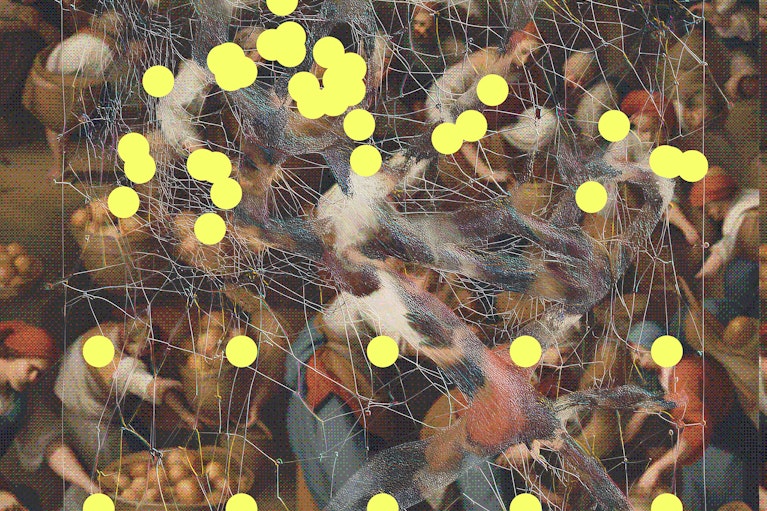Nathan Gardels is the editor-in-chief of Noema Magazine.
It can be misleading to invest too much meaning in this or that current event, especially in these transitory times when fickle public sentiment swings so wildly. But the most hopeful sign of late amid the twin convulsions of populism and the pandemic sweeping the world is the rapidly unraveling political fortunes of U.S. President Donald Trump and Brazilian President Jair Bolsonaro.
Both fashioned themselves as tribunes of the people, riding the rage against the status quo to power. As the zeal of one-time loyalists wanes with every passing day, a fresh fervor is turning against the empty promises and profound incompetence of populist rule. The sudden eruptions over race and inequality along with the persistent contagion of the coronavirus, aided and abetted by these leaders defiantly abjuring the public health imperative of covering their faces, have unmasked populism itself for what it is: personalist authoritarianism heedless of science, reason and the democratic art of compromise that shamelessly exploits the true anguish and honest hopes of the disaffected and dispossessed.
Trump’s campaign rally in Tulsa last week fizzled from the boasted million to some 6,000 true believers, mostly not wearing masks. The poor showing was not helped by the clever trickery of an insurgent TikTok network that reserved thousands of tickets with no intention of showing up. TikTok beats Trump’s tweets.
The president’s most rabid former national security adviser, John Bolton, was so appalled by the president’s twisted sense of patriotism that he revealed what everyone suspected but couldn’t before confirm from the inside. “Trump commingled the personal and the national not just on trade questions but across the whole field of national security. I am hard-pressed to identify any significant Trump decision during my White House tenure that wasn’t driven by reelection calculations,” Bolton writes in his new book, “The Room Where It Happened.”
While the president has done his best to erode the institutional checks and balances that would constrain his unilateral whims, the most trusted institution in America — the military — has closed ranks against him after the tone-deaf miscue of an armed forces-style clearing out of peaceful demonstrators near the White House in order to choreograph a faux stride of strength across Lafayette Park to a transparent Bible-in-hand photo-op. If the professional, non-partisan military is considered the deepest state, Trump is right to believe they all now favor regime change on Pennsylvania Avenue lest the honor of their uniform be used as just another political prop.
This Boat May Sink
Far to the south, the mask-less champion of the chloroquine cure who pretends to govern Brazil has seen the resignation in rapid succession of two health ministers who couldn’t abide his willing ignorance of the science of microbe shedding. The courts are investigating Bolsonaro’s closest aides for purposefully spreading misinformation on social media. In a Latin American tradition once thought consigned to the dustbin of history, menacing voices calling for restoring order are arising from the military barracks. All this, in turn, has stirred alarm among the respected figures who consolidated Brazilian democracy after the end of military dictatorship in the 1980s.
As Fernando Henrique Cardoso, who was president of the republic from 1995 to 2002, wrote to me recently:
We are living through a ‘perfect storm’ in Brazil. The coronavirus pandemic is spiraling out of control. … A tremendous social and economic crisis looms at the horizon, exposing the appalling inequality in our society. … The moment is fraught with risk.
Facts speak by themselves. President Bolsonaro pursues an agenda that is not democratic. We must all be together, act together in the defense of democracy. … We are all in the same boat and this boat may sink. To avoid such a disaster we need to affirm our conviction and hope in a better future for Brazil inspired by the values of political freedom and social inclusion. The military evidently must also be included in this dialogue about our common future.
Two Dangers
I am not close enough to the Brazil situation to suggest what the future there might hold, though I expect the dynamic will be much the same as in the U.S. — with the ominous exception of the role of the military.
In the U.S., two dangers could derail this trajectory of peaking populism and thwart real change in its aftermath.
The first danger is the radicalized reaction of woke militants who are calling for the literal defunding of the police and pressing a politically correct cultural purge that would even ban Jingle Bells from music lesson books because it was allegedly first performed in blackface. This could all too easily play into the wary minds of those voters whose small margin will determine defeat or victory for Trump in key states in the November election.
Even if Trump is defeated at the polls, the second danger is the restoration of a moribund political class embodied by Joe Biden, nice guy though he is. While his election would be a welcome relief from the Trump trauma, it could well forestall the badly needed structural renovation that would mend the breach of distrust in the institutions of self-government and start to close the gaping social fracture of inequality. We should not forget that Trump is not the cause of our governing crisis, but a symptom of the decay of democratic institutions captured by an insider establishment of organized special interests that failed to respond to the disruptions of digital capitalism and the dislocations of globalization, inviting the rise of populism in the first place.
The radicals should peer outside their self-referential silos to society as a whole and cool it. In the event of a Biden victory at the polls, the mainstream should not settle for a return to the status quo.
Structural Renovation
Structural renovation would entail an inclusive expansion of citizen engagement that could be called “participation without populism.” That would mean integrating social networks and more direct democracy into the system through new mediating institutions for deliberation by the public at large. That would both complement and compensate for the waning legitimacy of representative government, largely dominated as it is by those with the time and resources to preserve the status quo from which they benefit.
Post-COVID capitalism should aim to share the wealth as we recover health, as Nobel economist Joe Stiglitz and top hedge fund manager Ray Dalio have agreed in a discussion on universal basic capital in Noema. If taxpayers are socializing the risk by bailing out companies in peril due to the pandemic, they should share in the upside when prosperity returns. An equity share by all in “owning the robots” as digital capitalism increasingly divorces wealth creation and productivity from income and employment is a necessary follow on.
In order to make interdependence work for us instead of against us, hyper-globalization should be rolled back by pursuing “positive nationalism,” which means concerted post-industrial policies that would bolster the foundations of American resilience through massive investment in green infrastructure to create jobs and in public higher education to close the skill gap that drives inequality.
Positive nationalism is not the antithesis of global cooperation, but its precondition. Though conflict with China is inexorable over questions of trade, technological dominance and human rights, cooperation is imperative where common threats cross borders and interests converge. Any sensible global policy must involve a “partnership of rivals” with China on climate change and pandemics despite disputes on other fronts.
If spent populism and recovery from the pandemic are succeeded by political correctness or a return to the status quo ante, it will mark a historic failure of imagination at the very moment when it is most needed.





